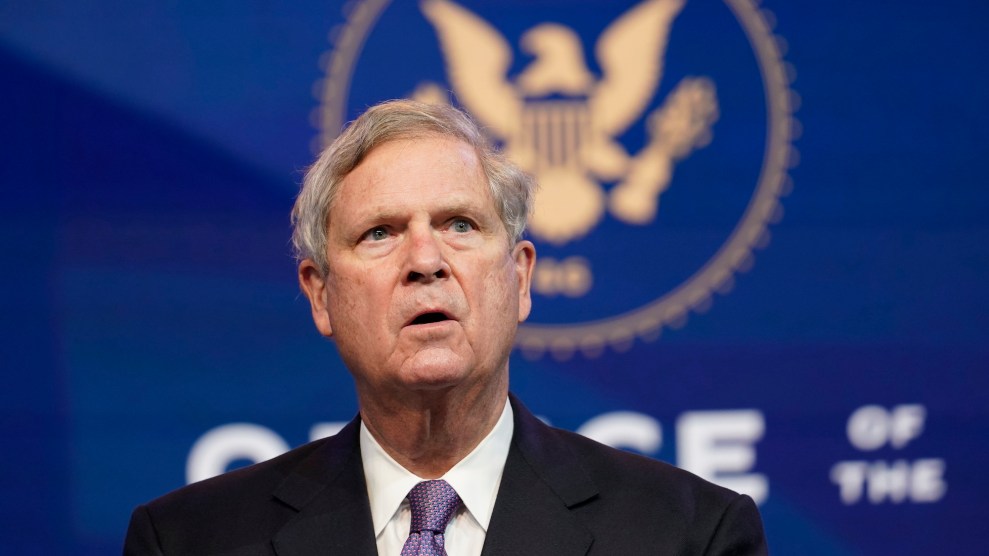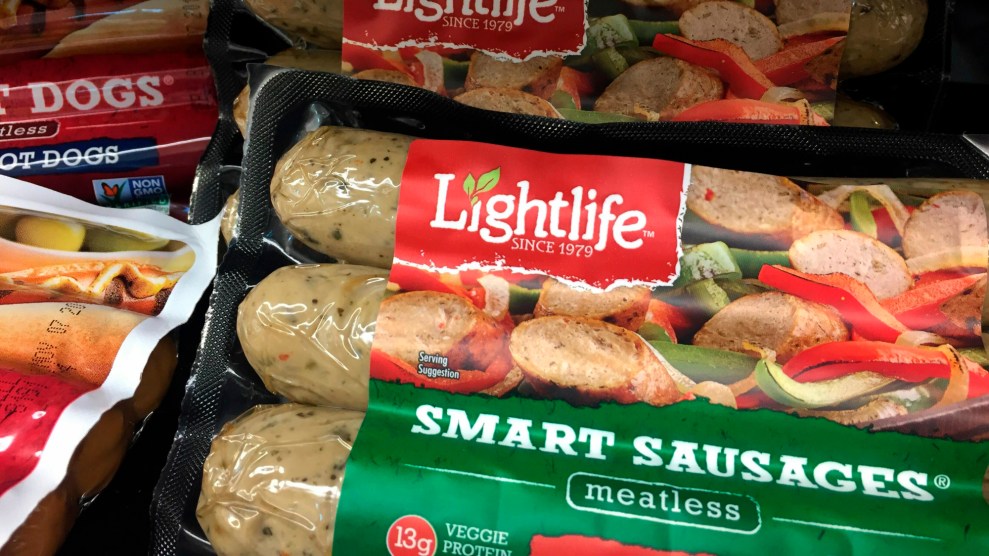
Getty Images
This story was originally published by the Guardian and is reproduced here as part of the Climate Desk collaboration.
Simple changes to messages on restaurants’ menus can double the frequency of customers choosing plant-based options instead of meat, research on the impact of food on the climate crisis has found.
The production, transportation, and consumption of food has become an increasing focus for climate researchers, with a recent study finding the food industry accounts for more than a third of the world’s total annual planet-heating emissions.
Much of the pollution is centered on meat. Raising cattle, chickens and pigs for meat, a process that often involves clearing large tracts of forest, causes about double the emissions of plant-based foods.
Meat consumption remains stubbornly high in the US—the average American gobbled down 264 pounds of meat in 2020—and is rising quickly in countries such as China. Many people are receptive to the idea of switching to vegetarian options in order to help the environment, however, the research found, with messaging on restaurant menus a potentially significant way of shifting behavior.
A multi-stage experiment by the research nonprofit organization World Resources Institute (WRI) involved about 6,000 people in the US and their reaction to menu descriptions. Researchers tested responses to 10 different sustainability-themed messages when the participants were asked to choose between different options on a menu, such as a bean burrito or beef burrito.
Several of the messages produced dramatic results. Diners who read “Each of us can make a positive difference for the planet. Swapping just one meat dish for a plant-based one saves greenhouse gas emissions that are equivalent to the energy used to charge your phone for two years. Your small change can make a big difference” on their menus chose a vegetarian dish 25 percent of the time, more than double the rate of diners who were shown no message at all.
Another message—“90% of Americans are making the change to eat less meat. Join this growing movement and choose plant-based dishes that have less impact on the climate and are kinder to the planet”—prompted 22 percent of people to opt for a plant-based dish, again far higher than the standard group.
Other messages, about the taste of the food and the need to protect the planet for future generations, also yielded positive results in choosing vegetarian meals, suggesting that consumers’ choices can be significantly shaped by how menus are presented.
“We know behavioral science is critical, it really moves the needle,” said Edwina Hughes, head of the “cool food pledge,” an initiative by WRI and the United Nations. “Themes of making a small change for a big impact and also around joining a movement really boosted the plant-based options.”
Hughes said Americans were ready for a “nudge” towards vegetarian options, likening such messages to hotels requesting their guests not demand their towels to be replaced every day, as a way to save water needed to wash them.
“Using descriptive messages that show the benefits of plant-based food choices can empower people to change their behavior and choose lower-carbon dishes,” Hughes said. “We can do this because people are primed and ready for this sort of messaging. They are receptive to seeing messages about the climate and are actively seeking out brands and logos that indicate climate-friendly products and services.”
WRI researchers said previous attempts to promote vegetarian options had fallen short.
Dishes have functionally been named “vegetarian lasagne” or “meat-free sausages,” as compared with more enticing meat nomenclature such as “grass-fed beef” or “butter-fried chicken.”
When dishes are called vegan it “really turns off mainstream audiences. It comes across as preachy, righteous, aggressive,” said Jonathan Wise, a consumer researcher who added that more “inclusive” messages could get people to switch more easily to plant-based meals.
“We launched a falafel burger in 2009, we said it is organic and it’s for vegetarians—it never sold well and we shut it down,” said Kaj Torok, chief sustainability officer at Max Burgers, a fast-food company that originated in Sweden. “The main thing we thought was: ‘Let’s not just go for this tiny group.’ It was important to go for the flexitarians [people who can skip eating meat] and those people who want to reduce their impact upon the climate.”
Torok said Max Burgers’ focus was now taste, rather than whether what’s being served is meat or not, allowing it to drastically increase the number of plant-based burgers on menus.
The company is part of WRI’s Cool Food Meals scheme, which has seen several food producers, including the Panera Bread chain, agree to disclose the carbon footprint of menu choices.
Such labeling is far from universal, however, with most people unaware of the climate cost of the things they eat. “The time should be here where we have third-party verification of this,” Torok said.






